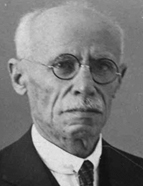

Meanwhile, the Iberian issue resurfaced. In 1925, Lúcio de Azevedo published his insightful article ‘Anotações à margem de um capítulo de Alberto Sampaio’ [Margin notes of a chapter of Alberto Sampaio] (1925). In the following years, Lúcio d ’ Azevedo would praise Henrique da Gama Barros in the article ‘A great historian’, as well as the Brazilian historian Afonso Tawnay (1927) and tests his articles ‘ A India e o ciclo da pimenta’ [India and the pepper cycle] (Volume I of the IV series, 1926/7), and ‘ Africa e o primeiro ciclo do ouro’ [Africa and the first gold cycle] (Volume I of the V series, 1928). At the same time, he reflected on Hispanicism in his article ‘ À memória de António Sardinha . Notas breves sobre o Hispanismo’ [To the memory of António Sardinha. Brief notes on Hispanicism] (Volume II of the V series, 1929).
In these notes, he returned to the topics that the journal had covered in previous years, echoing a lecture given by António Sardinha in Madrid, in which he had refuted Spengler ’ s theses on the decadence of the West, emphasising the spiritual values of the Iberian race, insisting on the distinction between individual and person, which Th omism had deepened, and distinguishing between the concept of life for the English, Germans and Spaniards in order to understand the Portuguese. In terms of civilisation and culture, António Sardinha preferred to use the term ‘Hispanics’. Spanish writers had appreciated Sardinha ’ s positions, and so had the Rio de Janeiro journal A América Brasileira [The Brazilian America] , edited by Elísio de Carvalho. For Lúcio d ’ Azevedo, it was not a matter of reviving Iberism but of embracing the values of Hispanic-Luso-American culture and civilisation. In an effort of clairvoyance, the author outlined his interpretation of António Sardinha ’ s positions and said that he believed that some, like Sardinha, saw in the union of the peninsula the chimaera of the Universal Empire. He , therefore , understood that, in the past, Jerónimo Osório had voted for Felipe II but commented that ‘the point seems to me to be more subtle than demonstrated’. And he called on Francisco Manuel de Melo to dispassionately judge the motives behind the Restoration of 1640, again invoking António Sardinha: ‘The experience of this kind of Hispanism has been made, and the proponent of the peninsular alliance rationally and convincingly asserts, never to be repeated’. And he went on to quote him when he said that Felipe II ’ s political thinking was reborn, awakened from the tomb in which it seemed to have lain like a corpse, taking on a new form of Hispanism, a new Sebastianism, a Fifth Empire that would encompass the nationalities beyond the ocean. However, the whole issue took on another dimension and meaning in the debate between cultures and civilisations on a global scale in the 20 th century in an effort to preserve human, civilisational and spiritual values. This quest was common to both sides of the Atlantic after being an essential and survival issue in Spain and Portugal. It was another perspective and another dimension, and António Sardinha certainly contributed to them.
This work is financed by national funds through FCT - Foundation for Science and Technology, I.P, in the scope of the projects UIDB/04311/2020 and UIDP/04311/2020.
